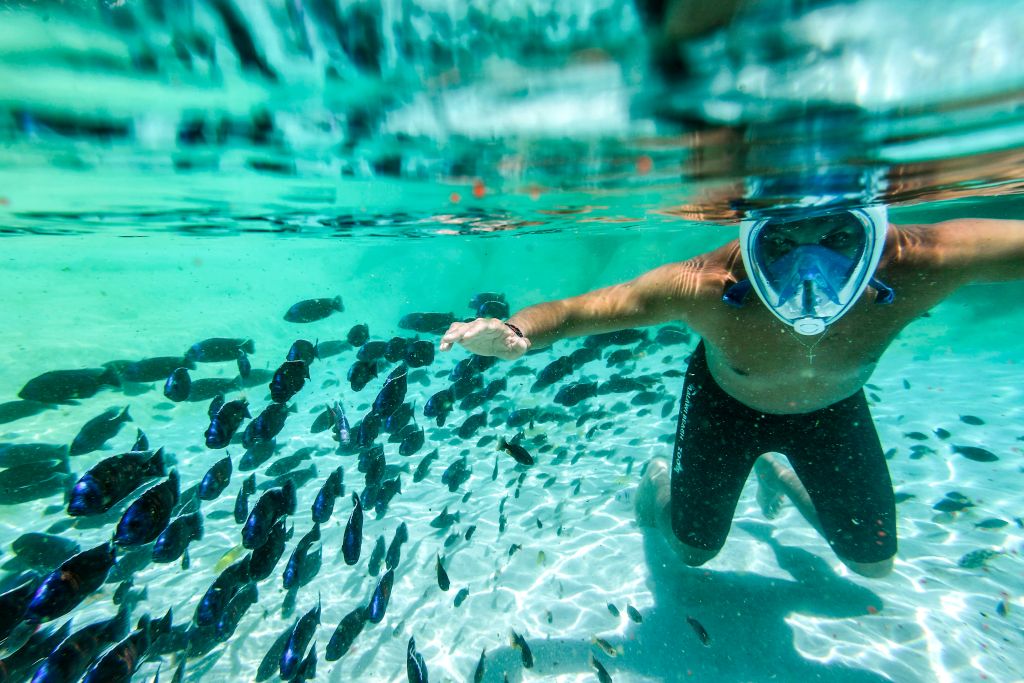With business down 95%, Hawaiian entrepreneur hopes her company and town survive
Due in large part to the state’s economy’s reliance on tourism, an industry that’s been particularly hard hit by the pandemic, Hawaii’s unemployment rate is 10.1%, according to the latest data from the Bureau of Labor Statistics. That is more than 3 percentage points more than the national average. Marketplace host Kai Ryssdal spoke to Manu Powers, co-owner of Sea Quest Hawaii, a Big Island company that offers boat tours in the area, about how the past few months have been for her town and company. The following is an edited transcript of their conversation.
Kai Rysdal: This is the standard first question when I speak to a small business owner: How is business?
Manu Powers: Business is bad. Business has dropped dramatically, let’s put it that way. And I would even go so far as to say that is an understatement. And we’re currently operating at about 5 percent this week. And that’s definitely not enough to feed us. It’s been a painful year, to say the least.
Rysdal: Yes I am sure. This, this question, to be able to endure you. You have been going through this pandemic like the rest of us for 10 months now. As far as I know they were closed for several months. How much longer can you hold out?
Powers: I would say thanks to, you know, some of the government funding that was given to us and we responded quickly to that, at this rate we could probably last through the fall. And I think that’s a lot better than most have gone through. When we bought Sea Quest in 2015, the company had eight employees. And when we closed in March 2020, we had 44 employees and the business was 600% the way it was when we started. So our business model was based on this growth. When the store closed completely, the model was thrown out the window and it became survival mode. If you have a city that is totally dependent on tourism in one way or another, you are in for a very difficult time for the residents. And hopefully we survive this.
Rysdal: The 35-something-year-old people you had to fire or let go. What are they doing now you know?
Powers: Many of them have moved away. Some of them are hanging along, you know, living off unemployment hoping for another stimulus package like we just got that there would be an extension of their benefits. But it’s tough. Even my husband, he even took a part-time job to support us because of course we had just bought a house and a mortgage that matched our income at the time. And now we have to keep it up. You know, we’re hoping to get out of this with our home and assets. So our boats, the building where the boats are, etc. We’ll see if we can do that.
Rysdal: Yes, on the subject of you and your husband taking other jobs, tell me about your reservations person and what it meant to you to be able to hire one. And then I guess you don’t need that person anymore.
Powers: To the right. So you are speaking to the reservation person right now. While we had full coverage just prior to the pandemic, this was a real milestone for us psychologically and emotionally. And so we’re now back to business. And that can get really stressful. We have three small children. We’re high school sweethearts, so I think we’ll make it. Check back in six months. But we have been subjected to stress we could never have imagined. So we’re trying to stay positive and that’s how we see it. This is an opportunity for us to get back into business, dig deep and really find some new strategies. And then, next, to diversify. If we’ve learned anything, it’s that diversification is key. And should we ever face something like this again, hopefully there are multiple revenue streams to fall back on.


Comments are closed.